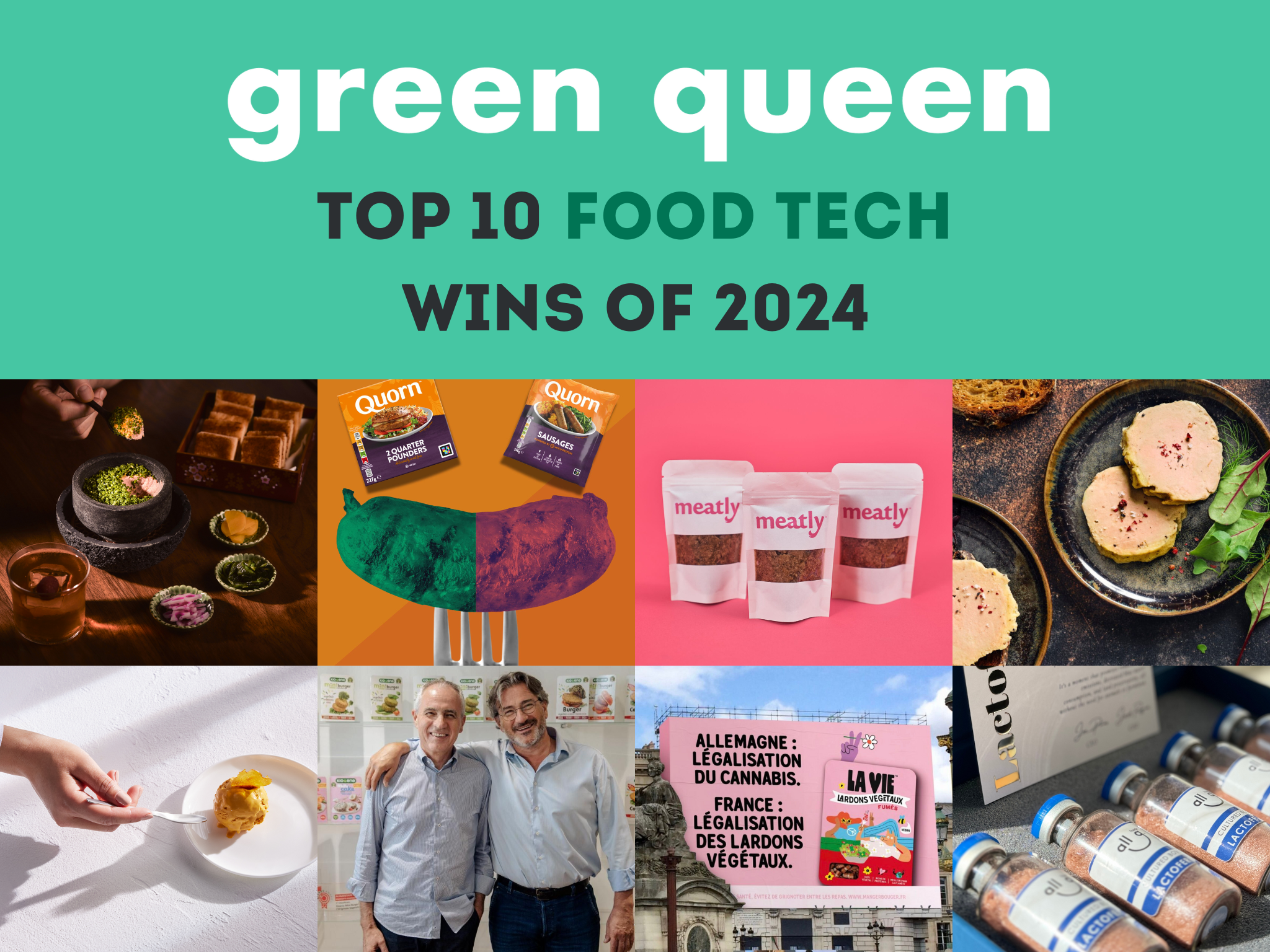3 Mins Read
It has been a milestone year for the future food industry, with regulatory approvals, big partnerships, and major court rulings. These are (in chronological order) the 10 biggest wins for food tech in 2024.
Vow goes to market with cultured quail
Australian startup Vow became the year’s first company to receive regulatory approval for cultivated meat, launching a cultured quail in the form of Forged Parfait in Singapore. Months later, it began serving its cultivated foie gras in Hong Kong, making it the only startup selling cultivated meat in two Asian markets. It followed Aleph Farms’s approval in Israel in December 2023.
Bezos Earth Fund sets up alternative protein hubs
Making good on its $100M future food promise, the Bezos Earth Fund opened the first of its three Centers for Sustainable Protein at North Carolina State University in May, followed by a hub at Imperial College London set up a month later, and a base at the National University of Singapore in September.
Quorn signs NHS deal for blended meat
Industry giant Quorn has had a turbulent two years, with sales dwindling and changes at the top. It desperately needed a win, and that came in the form of a partnership with the UK’s National Health Service. This will see Quorn supply its mycoprotein as an ingredient to be mixed with conventional beef and pork in blended burgers and sausages at hospitals across the UK.
Meatly is cleared to sell cultivated pet food
British startup Meatly became the first company to obtain approval to sell cultivated meat in Europe, and for pets. Its cultivated chicken was approved by regulators in the UK following an 18-month process, and was later part of successful feeding trials that demonstrated its safety and palatability for dogs. It aims to launch a dog treat product with a brand partner in Q1 2025.
Gourmey files for cultivated meat approval in the EU
France’s Gourmey, which is making a cultivated version of a local delicacy in foie gras, announced it had applied for approval in the European Union – a first for the region – alongside four other countries (Singapore, the US, the UK and Switzerland). It plans to offer its product to chefs and restaurants by 2026, and has already welcomed three Michelin-starred chefs to its advisory board.
UK opens national future food centre
In the UK, the University of Leeds became host to the National Alternative Protein Innovation Centre, set up by a £38M investment, £15M of which came from the national government. It will focus on plant-based, cultivated and fermentation-derived products and ingredients, and promote knowledge exchange via its international network of partners, which includes the United Nations.
Solar Foods earns US clearance for protein from air
Finnish food tech startup Solar Foods achieved self-determined GRAS (Generally Recognized as Safe) status in the US for Solein, its fermentation-derived protein derived from gases. The company needs to register its Vantaa-based Factory 01 with the FDA, and will seek the agency’s ‘no questions letter’ too. It suggested that products using the orange-yellow powder could be seen in the US in early 2025.
Gruppo Tonazzo says arriverderci to meat
One of Italy’s oldest meat manufacturers, Gruppo Tonazzo, decided to close its animal protein business after 136 years to solely focus on plant-based proteins via its well-established Kioene brand. The latter’s vegan burgers alone made up 63% of the group’s turnover last year, and given the environmental and health benefits, its owners felt the move was a no-brainer.
EU court blocks France’s ‘veggie burger’ ban
The European Court of Justice (ECJ) rejected France’s proposed ban on using meat-related terms to describe plant-based analogues, allowing producers to continue to use phrases like ‘veggie burger’, ‘plant-based sausage’ and ‘vegan bacon’ on product labels. The ECJ has returned the dispute to France’s highest court for a final decision.
All G gains China and US approvals for animal-free lactoferrin
Aussie precision fermentation player All G earned the regulatory nod to sell its recombinant bovine lactoferrin in China, shortly before obtaining self-determined GRAS status in the US for the animal-free ingredient. In both cases, additional steps are needed before it can be used in infant formula products – but a human lactoferrin equivalent launch is planned for late 2025.



